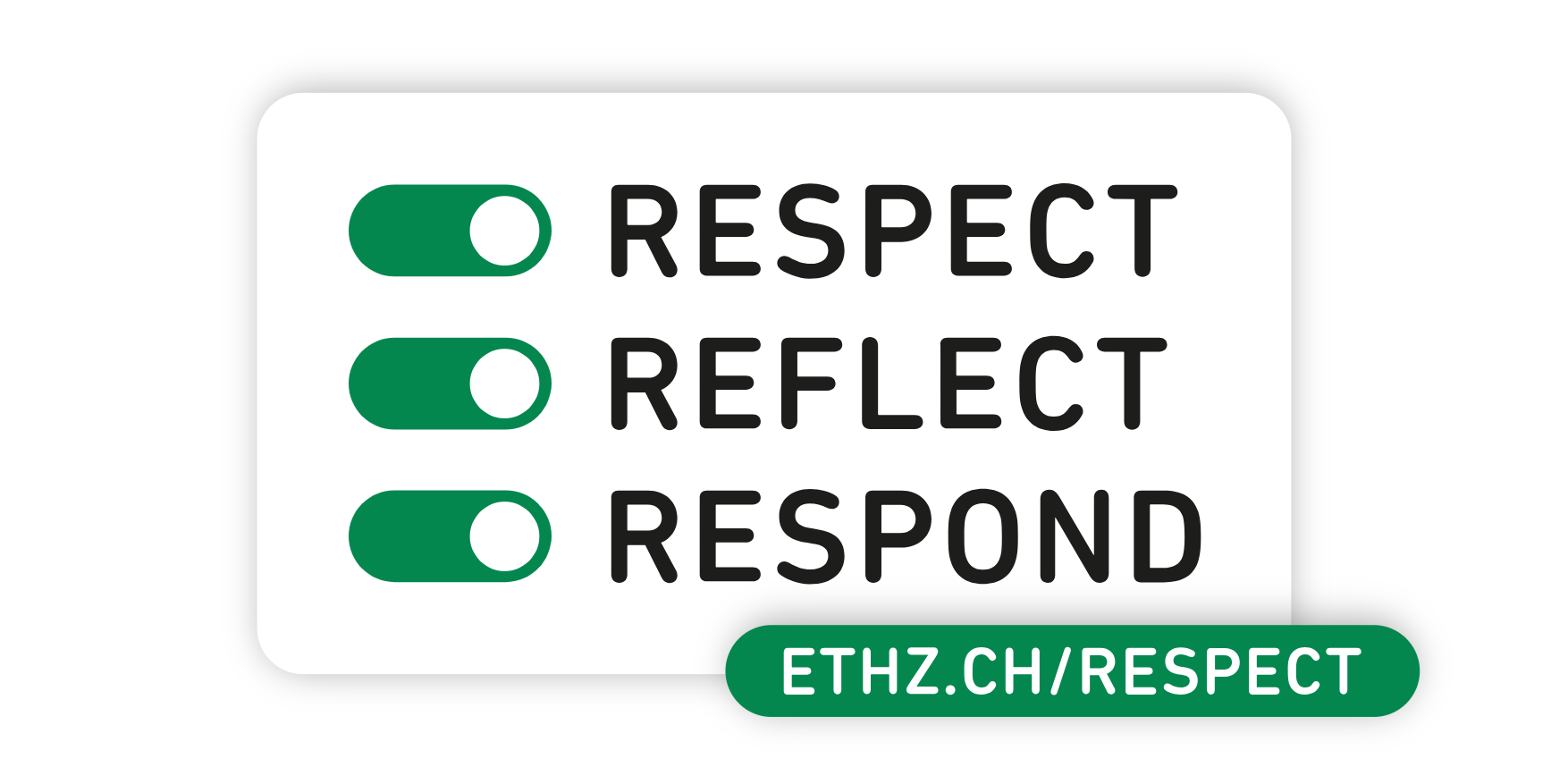"No one is at the mercy of their emotions"
Since the beginning of March, members of ETH Zurich have been able to take advantage of the Respect programme to deepen their skills in respectful collaboration. The first live event is dedicated to the topic of emotion regulation. Nadia Dörflinger-Khashman, Head of Diversity and Cooperation, explains how we all benefit from the input lecture.

Ms Dörflinger-Khashman, the title of the keynote speech at the beginning of the Respect Programme is "Emotions under control? How emotions affect us and ways to regulate them successfully". Why did you choose this particular topic?
Nadia Dörflinger-Khashman: For at least two reasons: Firstly, emotions are often perceived as inappropriate in the work environment. But emotions are an important source of information. Where there is emotional energy, there are often very important concerns. In order for these to be heard by others, it's important to manage your own emotions in a conversation so that the other person can participate. Another reason is that strong emotions – such as anger, fear or powerlessness – can make it difficult to think clearly, empathise or find solutions in tense situations. The ability to self-regulate emotionally can help us to engage in constructive dialogue in difficult moments instead of getting stuck.
ETH is generally perceived as a very rational organisation. How would you assess this?
It's true that our core activities, such as teaching, research or the transfer of knowledge and technology, could give the impression that we are a purely rational organisation. But at the same time, performance and innovation are about passion, discourse, failure and co-creation. This requires communication, collaboration and conflict management skills. Being able to manage your emotions at the right moment can make the difference between dysfunctional escalation and constructive controversy.
Let's get back to the keynote speech: Who is the talk aimed at and what will the participants take away from it?
The talk is aimed at everyone at ETH - regardless of level or function. I think each and every one of us sometimes struggles with feelings that paralyse or control us in certain professional situations. Sven Barnow, one of the most renowned experts in the field of emotional self-regulation in the German-speaking world, will show that emotions are not only important and always present but also that no one has to be at the mercy of their emotions.
What can we expect from the Respect programme in the future?
We have put together a broad programme that addresses different aspects of value-based collaboration. For example, in April there will be live events with experts on topics such as unconscious bias, dealing with conflict and a panel discussion on bullying. Our website also offers practical tips and checklists for the workplace on different aspects of respect and collaboration. It’s well worth exploring the Respect programme. I'm sure that everyone will find a topic that interests them and that they would like to explore further.
Invitation to the keynote speech
“Emotions under control? How emotions affect us and ways to regulate them successfully”
If you are able to recognise and regulate your emotions, you can also steer difficult conversations in a constructive direction.
In this Respect programme keynote speech, Sven Barnow, head of the Clinical Psychology and Psychotherapy unit at the Psychological Institute at Heidelberg University, explains potential ways of taking positive action to prevent you from being held hostage by your own emotions or those of others.
Thursday, 21 March, 5.00 to 6.00 p.m.
Register here: external page https://ethz.zoom.us/j/64555347863
Language: The event will be held in German, with simultaneous interpreting into English
Download Add the date to your calendar (ICS, 62 KB)
The keynote speech will be recorded and will then be available on the Respect Program website and in the external page Lifelong Learning Hub.
Note on the translation
This text has been translated for your convenience using a machine translation tool. Although reasonable efforts have been made to provide an accurate translation, it may not be perfect. If in doubt, please refer to the German version.
Should you come upon significant translation mistakes, please send a short message to intern-aktuell-news@hk.ethz.ch so that we can correct them. Thank you very much.
Always up to date
Would you like to always receive the most important internal information and news from ETH Zurich? Then subscribe to the "internal news" newsletter and visit Staffnet, the information portal for ETH employees.
Comments
No comments yet